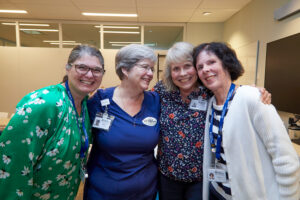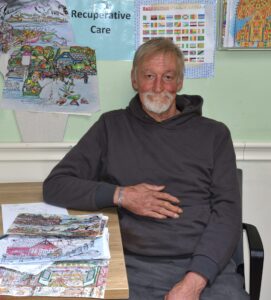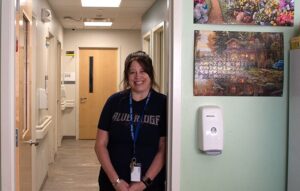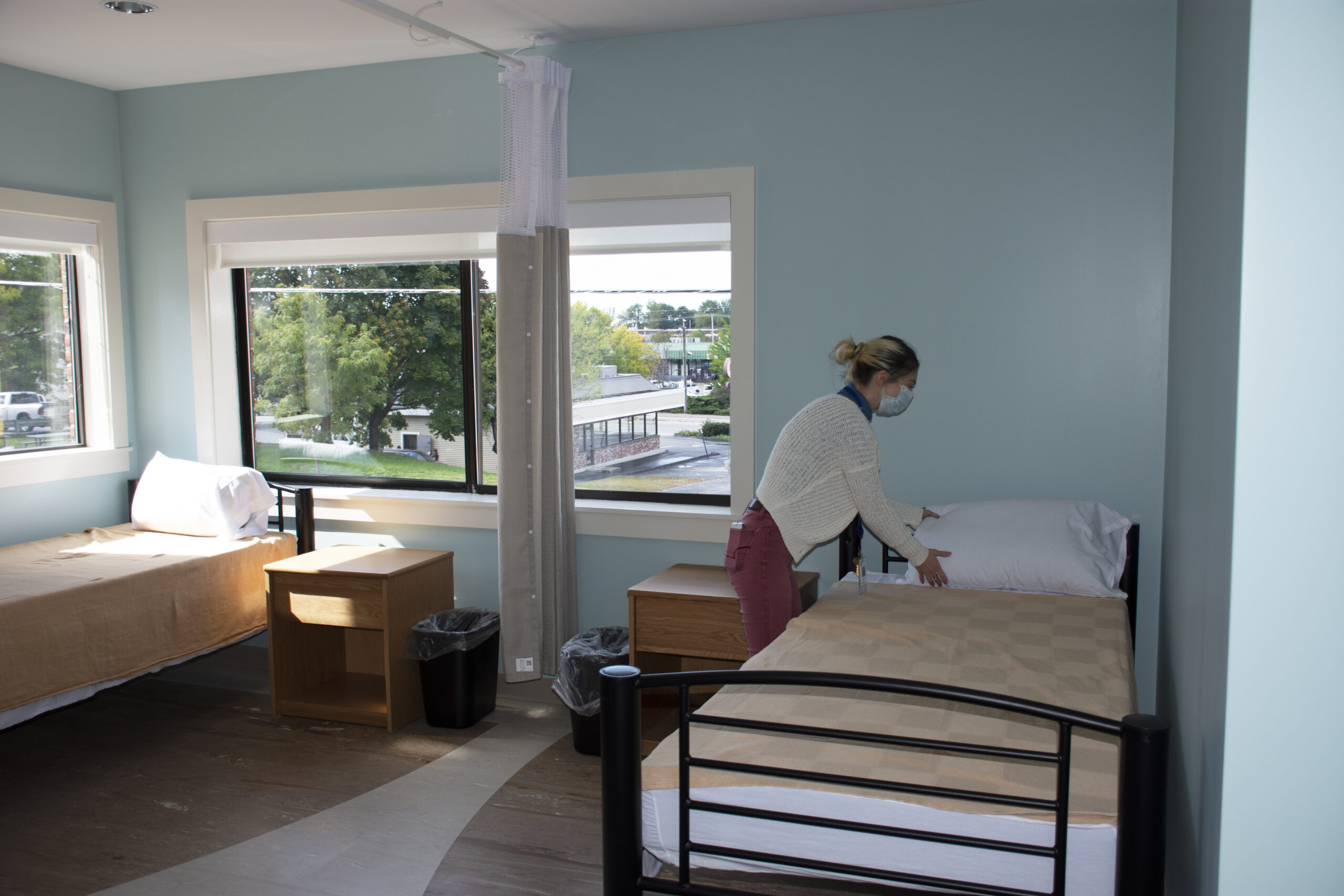Imagine if you experienced an accident or serious illness or were admitted to the hospital and you didn’t have a home to return to or a bed to rest in. Unfortunately, this is what happens to many vulnerable people in our community; too many people experiencing homelessness get discharged from the hospital, still weak and sick, and their only option is to return to the street or a shelter where recovery is difficult, if not impossible.
Greater Portland Health (GPH), Preble Street, and Maine Medical Center (MMC) have partnered to create Maine’s first recuperative care program to address this unmet need in our community. This innovative and cutting-edge program is hosted in GPH’s Federally Qualified Health Center in Portland and offers patients 24/7 recuperative care and case management.
Recuperative care (also known as medical respite care) services include short-term medical care and case management provided to individuals recovering from an acute illness or injury that generally does not necessitate hospitalization but would be exacerbated by their living conditions (e.g., street, shelter, or other unsuitable places). Numerous studies have found that recuperative care programs reduce hospital readmission, days in the hospital, and visits to the ER, reduce overall medical costs, and improve health outcomes.
At this new program, up to 15 patients at a time can access care for ongoing medical needs, meals, and a place to sleep for up to six weeks. Patients benefit from:
- Medical care: Primary care, wound care, and infectious disease treatment
- Behavioral health: Psychiatry, therapy services, and substance use disorder treatment
- Social services: Medical case management as well as screening for addressing social determinants of health including housing, food access, and transportation
This new program is already making a big difference in many people’s lives and bridging a critical gap in services for people experiencing homelessness. Preble Street staff provide 24/7 trauma-informed case management for these patients. In its first six months, 35 individuals have received care, 28 people were connected to MAT (Medication Assisted Treatment), and 12 individuals have been connected to housing!
“For more than 20 years, Preble Street and other providers have been advocating for a safe and healing place for people who are unhoused,” says Brittney La Shier, Assistant Director, Recuperative Care Program. “With medical staff in the building 24/7, caseworkers connecting and bringing patients to outside medical appointments, and Preble Street staff managing the residential space and providing short-term case work, this wraparound program is as comprehensive as we could hope. Clients report never having felt so safe and supported while unhoused.”
Read more...

Compassionate end-of-life care for unhoused individuals
Preble Street’s work is never done in isolation. We are continuously making connections with other social service providers and nonprofits to better serve clients and the needs of the community. This month, we are highlighting a special partner of several of our programs, Hospice of Southern Maine. Hospice of Southern Maine (HSM) works to ensure

Brian’s Story
Sitting at a table at the Recuperative Care Program (RCP), Brian lays out pages of his art. “I’m working on making a children’s coloring book,” he says. Most of the pieces he has laid out are of captivating coastal scenes featuring birds, boats, and buoys. The longer you look at each page, the more you’ll

Staff Highlight: Caitlin Tobin – “I learn so much from our clients”
Preble Street staff are #CompassionInAction, and we want you to get to know them! This month we’re introducing you to Caitlin Tobin, 1st Shift Case Manager at the Recuperative Care Program. Name, title, and program: Cait Tobin, Case Manager, Recuperative Care Program (RCP) How long have you worked at Preble Street? I’ve been here for
